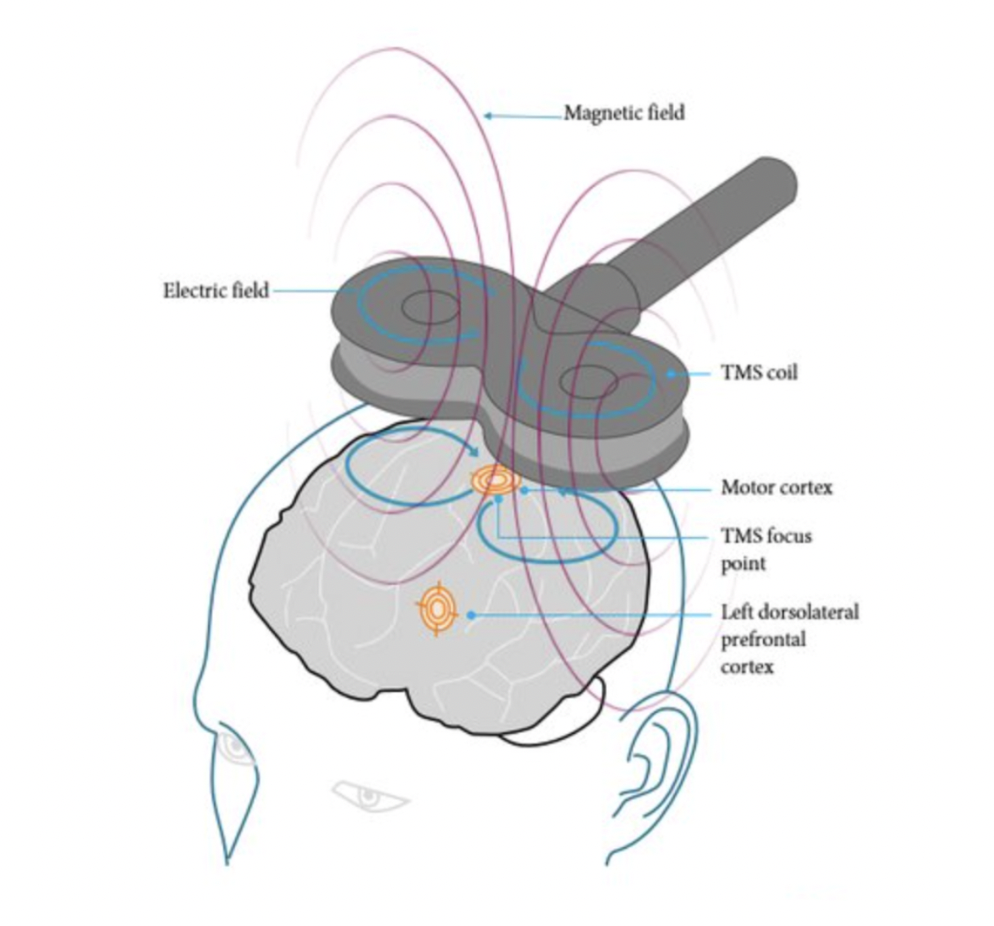TMS for Treatment-Resistant Depression: What to Do When Nothing Else Works
🌟 Finding Hope with TMS in Boston
Living with depression is hard. But living with depression that doesn't respond to medication or therapy? That can feel unbearable. If you've tried everything and nothing seems to work, you're not alone. Many in the Boston area—including Brookline, Cambridge, Newton, Somerville, and Back Bay—are discovering Transcranial Magnetic Stimulation (TMS) as a life-changing solution for treatment-resistant depression.
At Dignity Brain Health in Brookline, MA, we offer cutting-edge TMS therapy designed to help you feel like yourself again—without the side effects of medication.
What Is TMS Therapy?
Transcranial Magnetic Stimulation (TMS) is a non-invasive, FDA-approved treatment that uses magnetic fields to stimulate nerve cells in the brain. Specifically, it targets the prefrontal cortex, which is often underactive in people suffering from depression.
How It Works:
A coil is placed gently on your scalp.
Magnetic pulses are delivered to targeted brain areas.
These pulses stimulate neural activity and improve mood regulation.
Unlike medications, TMS doesn’t flood your body with chemicals—it works at the source.
Why Consider TMS for Treatment-Resistant Depression?
Many patients who come to Dignity Brain Health have been through the cycle of:
Trying multiple antidepressants
Experiencing side effects
Undergoing years of talk therapy
Feeling hopeless
TMS offers a scientifically-supported alternative.
For individuals who have not found relief through traditional treatments, the burden of depression can feel relentless. Side effects from medications—like weight gain, insomnia, or emotional numbness—often add to the struggle. Some patients report becoming disillusioned with therapy after years of sessions that yield only marginal improvements. This is where TMS stands out.
Benefits of TMS:
✅ Drug-free and non-invasive
✅ Minimal side effects (typically mild scalp discomfort or headache)
✅ No downtime—you can resume daily activities immediately
✅ High success rate for those who haven’t responded to other treatments
In a study published in Biological Psychiatry, about 50–60% of patients with treatment-resistant depression responded positively to TMS, with approximately one-third achieving full remission (Gaynes et al., 2011).
A separate large-scale observational study also found that 68% of patients with treatment-resistant depression showed a significant clinical response to TMS, with 45% reaching remission by the end of their treatment course (Carpenter et al., 2012). These statistics offer real hope to patients who have exhausted other options.
Is TMS Right for You?
You may be a good candidate for TMS if you:
Are between the ages of 18 and 70
Have been diagnosed with Major Depressive Disorder (MDD)
Have tried at least one antidepressant without success
Are not currently experiencing psychosis or seizures
We offer personalized assessments at Dignity Brain Health to determine if TMS is a fit for your needs.
Schedule a consultation to speak with our compassionate care team in Brookline.
TMS in the Boston Area: Why Location Matters
Boston is home to some of the country’s top medical and mental health institutions, including Massachusetts General Hospital, McLean Hospital, and Beth Israel Deaconess Medical Center. TMS is increasingly offered as part of integrative care plans across these centers.
At Dignity Brain Health in Brookline, we're proud to be part of this innovative mental health landscape. Our clinic is easily accessible to residents in:
Cambridge
Newton
Somerville
Back Bay
Allston-Brighton
Convenience meets compassionate care right in your neighborhood.
📍Find us on the map:
Dignity Brain Health - TMS Therapy Clinic
What to Expect During TMS Treatment
Each TMS session lasts about 20-40 minutes and is performed in a relaxing, outpatient setting. Here’s what a typical course looks like:
Initial Evaluation: We assess your medical history and symptoms.
Treatment Plan: Daily sessions, 5 days a week, for 4-6 weeks.
Progress Monitoring: We regularly check in to ensure effectiveness.
Patients often begin to notice improvements in mood, energy, and sleep after just 2-3 weeks.
Addressing Common Concerns
Does TMS hurt?
TMS is generally painless. Some patients feel a light tapping sensation on the scalp.
Is TMS safe?
Yes. TMS is FDA-cleared and has been used safely for over a decade.
Will insurance cover TMS?
Most insurance plans in Massachusetts—including Blue Cross Blue Shield, Harvard Pilgrim, and Tufts—do cover TMS for depression when criteria are met.
Contact us to verify your insurance benefits.
Real People, Real Results
Many of our patients in Brookline and greater Boston report transformative changes:
"After years of medications and therapy, TMS gave me my life back. I only wish I'd found it sooner."
"I was skeptical, but within a few weeks, I started feeling lighter, more energized, and hopeful."
We invite you to read more patient testimonials and see how TMS has helped others just like you.
Take the Next Step Toward Healing
You don’t have to keep suffering. At Dignity Brain Health, we’re here to walk with you every step of the way. Conveniently located in Brookline, we proudly serve the greater Boston community, including Newton, Somerville, Cambridge, and Back Bay.
Let’s talk.
Book your consultation today or leave a comment below with your questions.
Your healing journey could start with a single conversation.
Helpful Resources
References
Carpenter, L. L., Janicak, P. G., Aaronson, S. T., Boyadjis, T., Brock, D. G., Cook, I. A., Dunner, D. L., Lanocha, K., Solvason, H. B., & Demitrack, M. A. (2012). Transcranial magnetic stimulation (TMS) for major depression: a multisite, naturalistic, observational study of acute treatment outcomes in clinical practice. Depression and anxiety, 29(7), 587–596. https://doi.org/10.1002/da.21969
Gaynes, B. N., Lux, L. J., Lloyd, S. W., Hansen, R. A., Gartlehner, G., Keener, P., Brode, S., Evans, T. S., Jonas, D., Crotty, K., Viswanathan, M., & Lohr, K. N. (2011). Nonpharmacologic Interventions for Treatment-Resistant Depression in Adults. Agency for Healthcare Research and Quality (US).
—
CONTACT INFO:
DIGNITY BRAIN HEALTH
1101 BEACON STREET, SUITE 8W
BROOKLINE, MA, 02446
UNITED STATES
Phone: (617) 855-7288



